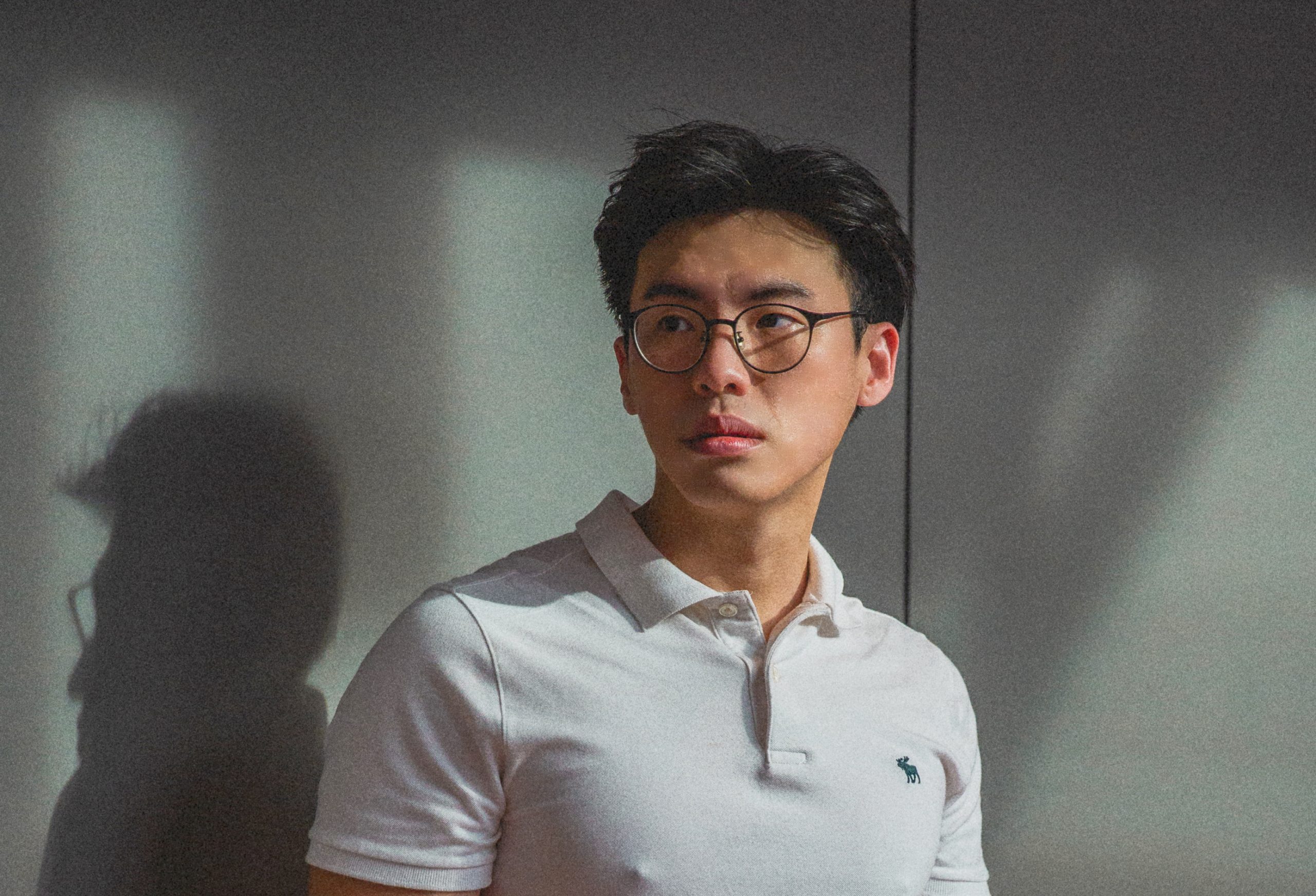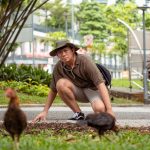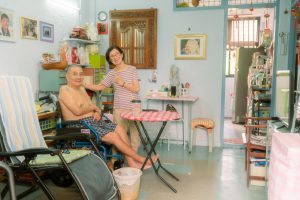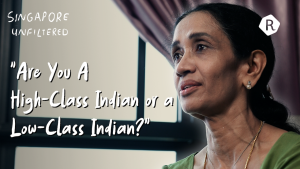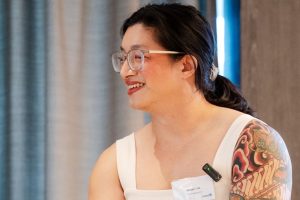All images by Shaun Yeo, unless stated otherwise
Shaun is familiar with public housing. After six years of shuffling between different students and different houses as a private tutor, he left the tuition industry for a career change—only to shuffle between houses again.
That’s because the 28-year-old now works as a real estate agent (you can reach out to him here). Competition is steep, and setting yourself apart as a realtor sets you up for success. After all, there are 34,000 realtors currently in the market—a shockingly large number for a land-scarce country.
For Shaun, finding his niche came naturally. While other real estate agents struggle in this aspect, Shaun was pretty clear on how to set himself apart.
Currently, Shaun’s Linkedin biography reads: “Specialise in LGBTQ+ housing in Singapore—helping queer individuals optimise and strategically structure their property portfolio within structural constraints.”
In other words, Shaun helps LGBTQ+ individuals find homes in a country that makes it hard for them to buy subsidised housing.
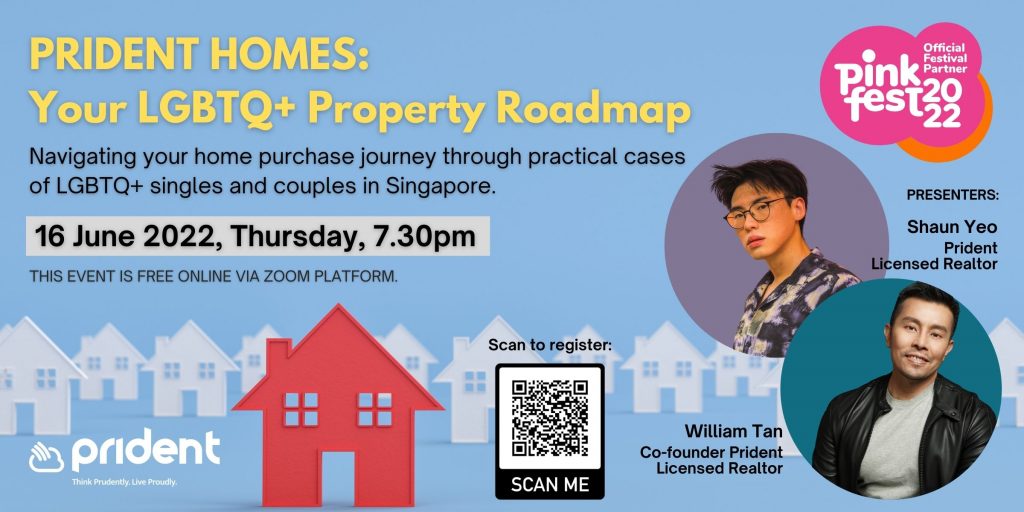
His unique selling point is bold in its premise and defiant in scope. As long as the powers that be continue to define marriage strictly as a union between man and woman, the LGBTQ+ community will continue to face issues in affordable housing. Home ownership, quintessentially intertwined with marriage in Singapore, stands much further from realisation to the local LGBTQ+ community.
It is why, as Singapore’s very own ‘LGBTQ+ realtor’, Shaun has his work cut out for him. His job navigates the inevitable obstacles that national housing policies have put in place to promote a specific definition of ‘family’.
Currently, members of the LGBTQ+ community who dream of public housing have limited options—a small 2-room Flexi flat in a non-mature estate or the resale market. Additionally, they are only eligible for these options when they turn the ripe old age of 35.
The Housing Development Board’s new classification model, neatly titled ‘Prime Location Housing’, is entirely out of the question. So is a 3-room BTO flat or larger.
“It’s challenging. But with the right planning, home ownership in Singapore is possible—even for those who feel discriminated against,” Shaun rattles off his tagline amidst the boom of the cafe’s speakers in Chinatown, where we’re meeting for this interview.
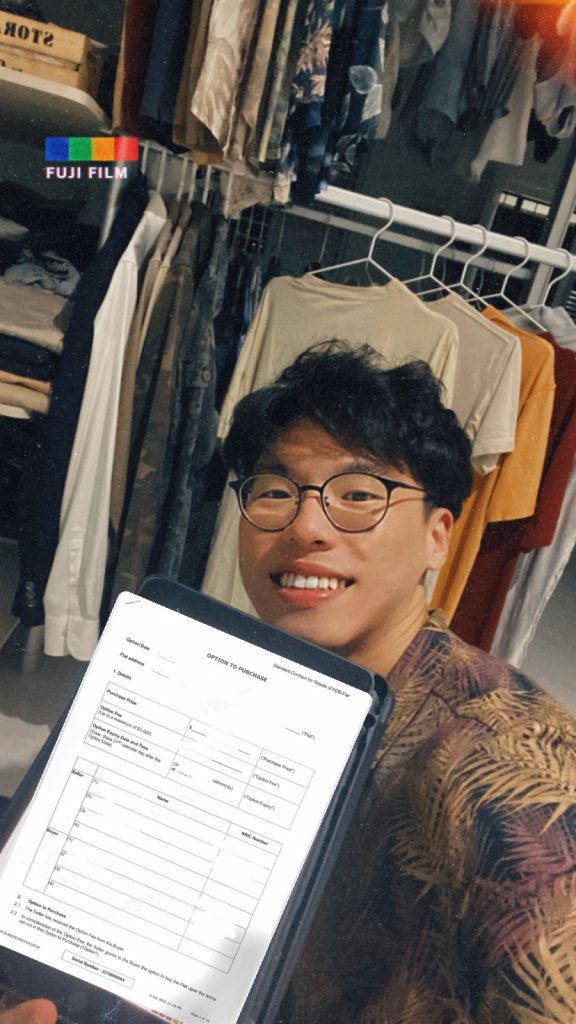
Housing For The Fringes
It’s a Saturday when we meet. While others are lounging at home, Shaun tells me he has just clocked off from work. A thick stack of paperwork burnt his entire Saturday morning. But he doesn’t mind, he prefaces. The real estate industry never sleeps—it’s all part and parcel of the job.
We exchange pleasantries about our personal and professional lives. Shaun had graduated with a Bachelor’s in International Relations and Affairs from the University of London, a far cry from what he’s doing now.
“In secondary school, I was interested in Geography, so I thought I should do something related to it,” he recalls when I asked why he decided to pursue this career path. “At the same time, I was also concerned about the financial aspects of the job; I needed a career that could help make money. That is why I settled on real estate.”
Still, while million-dollar resale public flats and exorbitant private housing make headlines regularly, the narrative of high-flying realtors could not be further from the on-the-ground truth.
Most real estate agents are saddled with transportation and marketing costs out of their own pockets and earnings—unseen costs that drain an agent’s profits. Visible as they are, highly successful realtors are an incomplete representation of the whole pack.
It’s not a stretch, then, to say that the local real estate industry is gruelling for most agents—let alone an agent whose marketing niche focuses on a minor segment of society. “When I looked at the housing policies, I felt a sense of sadness and exasperation.”
Currently, Shaun lives with his parents in a public housing estate. Like any other Singaporean, he dreams of owning his own house one day.
“I know how they feel when it comes to housing. I personally relate to it. That is where my personal motivations drive my professional goals. I want to help the LGBTQ+ community and let people know that it is possible to own a home even if the current policies make it slightly harder for single people and other types of relationships.”
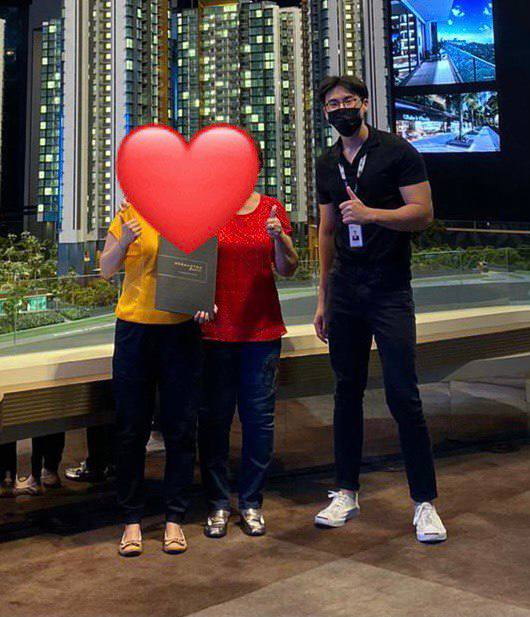
Plugging The Gaps for the LGBTQ+ community
According to Singapore’s 2020 Census, the number of singles has risen across all age groups. Section 377A, a colonial-era statutory law which criminalised sex between two consenting adult men, was only just repealed.
Recent developments suggest that housing policies should, at the very least, be more compassionate to these segments of society—one that grows larger as we speak. But that’s not the case. Yet.
Deliberately or by design, the current slate of housing policies isolates a group of Singaporeans from that dream. The LGBTQ+ community (and everyone else who can’t or choose not to get legally married) are unceremoniously shoved further into the background.
“A house is something to call one’s own. It’s also a ticket to social mobility,” Shaun explains. “After the minimum occupation period, people can easily make a large sum. It’s probably the first time they make such a large sum within such a short time.”
According to Shaun, this leg-up is highly exclusionary.
“LGBTQ+ couples, with limited options, cannot enjoy the same monetary benefits as heterosexual couples because of the policy. There is a ceiling to how much a 2-room Flexi flat in a non-mature estate can fetch. Resale flats, on the other hand, require people to already be financially stable enough to afford them, and the reality is that not everyone can.”
Shaun’s north star, then, is to find a way under the current policies so that LGBTQ+ couples can enjoy the same or almost equal benefits as heterosexual couples in Singapore. His work plugs a glaring gap in the housing industry today.
Through a mix of case studies and explainers, he dispenses sage advice on TikTok about how LGBTQ+ couples can own a home in Singapore.
“Two men kissing on a housing infographic catches attention. Everyone’s attention span is so short these days. But it’s also about the key message: Owning a home in Singapore is possible for the LGBTQ+ community.”
And he’s not alone in his fight. Shaun is also a part of Prident—an apt portmanteau between the words ‘pride’ and ‘prudent’.
Prident is a non-profit collective formed two years ago that educates Singapore’s LGBTQ+ community in practical matters like real estate or financial planning. It’s a sure sign that the gap is growing so large that it demands the formation of a collective.
Of course, public housing is but one option to secure a roof over your head. The private property market and rental apartments are other options that Shaun’s clients commonly consider—if they can afford it, that is.
Priced Out and Shut Down
“There were instances where you can work out all of someone’s finances and realise they cannot afford it.” The upbeat cadence of Shaun’s responses slows into a measured and deliberate rhythm.
“That’s a sobering experience for me. You want to help your clients as best as you can. But sometimes, they’re not financially ready. I always tell them that it’s perfectly fine to take a step back and work towards getting to that position.”
He estimates that he has helped more than a dozen clients find homes throughout his two-year real estate career—between 70 and 75 percent of them are from the local LGBTQ+ community. He could have served more clients, but some were financially unprepared to afford a home.
“There’s no shame in knowing that you cannot afford a house at this point in your life. Maybe you’re not ready. But I can help you work out the finances. My job is to reach out and tell you the end goal you need to work towards.”
Shaun emphasises that house-hunting LGBTQ+ couples are like anyone else. They come from a range of socioeconomic backgrounds. Not everyone can afford a big ticket purchase, and not every LGBTQ+ couple can afford a house without batting an eyelid.
In 2022, the price of resale HDB flats increased by 10.3 percent compared to the year before; rental prices for both public and private housing also climbed late last year.
It goes without saying that the housing market is needs-blind. An expensive house is expensive, regardless of your sexual orientation or marital status.
And while the barrier to homeownership remains an obstacle for some Singaporeans, it is much higher for the LGBTQ+ community. Singles, for instance, generally get half the grant amount compared to couples.
“As a married couple, you can combine salaries. So, heterosexual couples are really starting with a higher base. For gay buyers, the summit is farther when we look to the goal of home ownership.”
Nonetheless, it’s not a problem without a solution. The solution is just a little fussy.
“Say an LGBTQ+ couple owns private property. They can structure it such that one person owns 99 percent and the other owns 1 percent. Both can still utilise their entire CPF Ordinary account savings to pay for the CPF portion of the house.”
“Maybe the couple plans on upgrading and buying a new launch private property in the next three years. When this happens, they will have to pay additional tax in the form of seller stamp duty. The 1 percent owner can purchase the new launch, and the seller stamp duty will be calculated based on the 1 percent ownership instead of the 99 percent.”
“But this requires a lot of trust. If they break up, in the eyes of the law, the person only owns 1 percent of their private property even though they utilised their own CPF OA account.”
And while renting is a more direct pathway, it drains precious financial resources that could have been saved for home ownership—something that realtors in Singapore encourage as part of an excellent financial plan.
“There is no right or wrong here. Renting seems to be the trend nowadays. But every time you pay rent, nothing goes towards a principal payment. Compare this to a house. At the end of the day, when you retire, you want something to fall back on.”
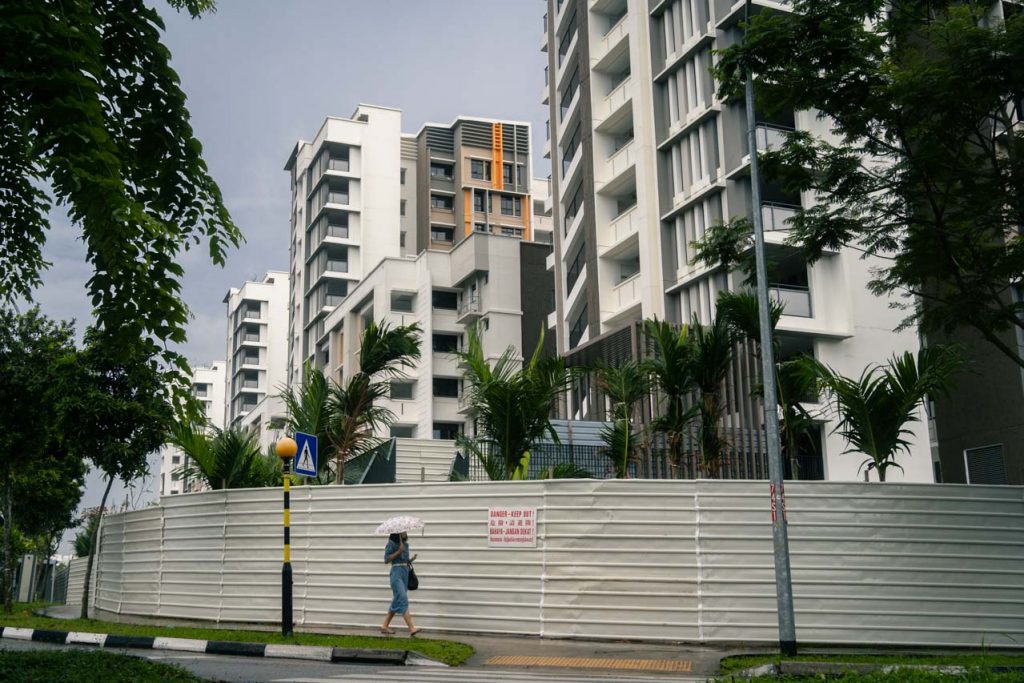
An Equality of Choice
People enter the housing market for a variety of reasons. Singles in a joint-ownership scheme might want a forever home, while others are looking for a house that is likely to appreciate in value over the next few years before moving on to the next property. Some are in search of temporary shelters and respite from circumstances back home.
Sure, not everyone pursues the dream of home ownership. But it would be nice if anyone, single or married, straight or otherwise, were afforded the same freedom and options if they choose to do so.
Homeownership embodies independence and freedom, neatly packed and contained within four cement walls. An inequality of choice built on family-forward policies chokes an individual’s possible freedom to death.
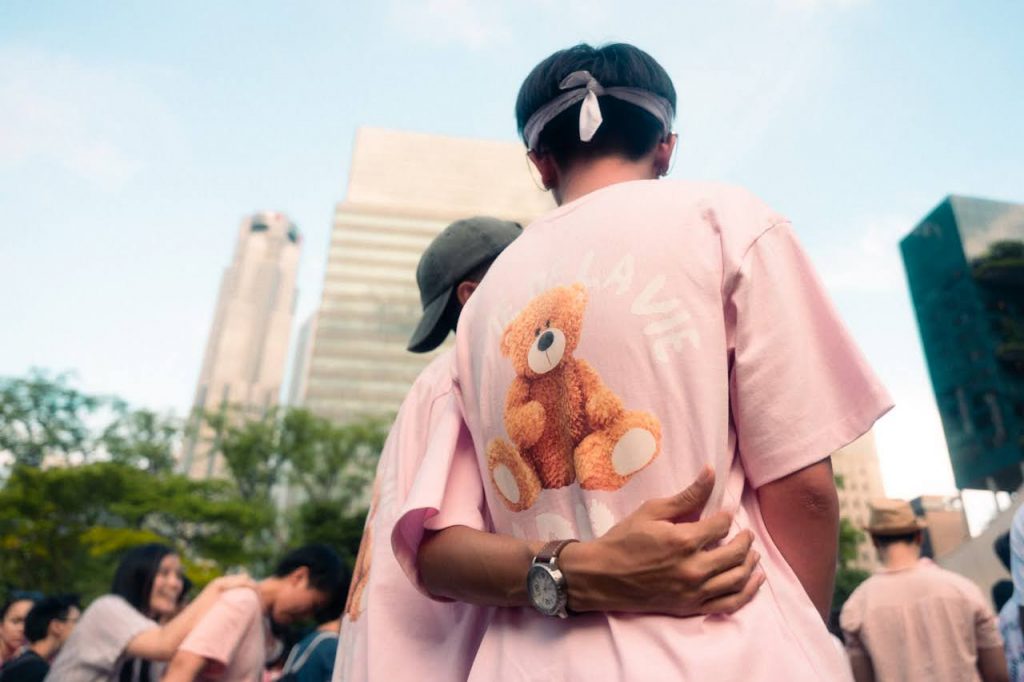
I ask him what he hopes to see in Singapore’s housing policies.
“I hope the BTO option can be extended to singles beyond the two options. Maybe they can buy three-room flats as well,” Shaun shares. “The government could also consider lowering the minimum age for singles to purchase public housing from 35 to 30 years old.”
However, he’s cautious when I ask if he’s confident about these changes ever happening.
“We didn’t expect 377A to be repealed, but it did it. So you will never know. For now, we are given this box to work with. I would love for the box to be bigger, but the best thing we can do is work within the box we’re given regardless of how unequal it may be.”
Shaun understands his role in a gay person’s search for a dream home. Which is why he tells me he always tries to put up an optimistic front.
“But in reality, I feel helpless. As a real estate agent, I don’t want my clients to feel what I felt when I looked at the housing policies. I want them to have hope to know that there is always a way.”
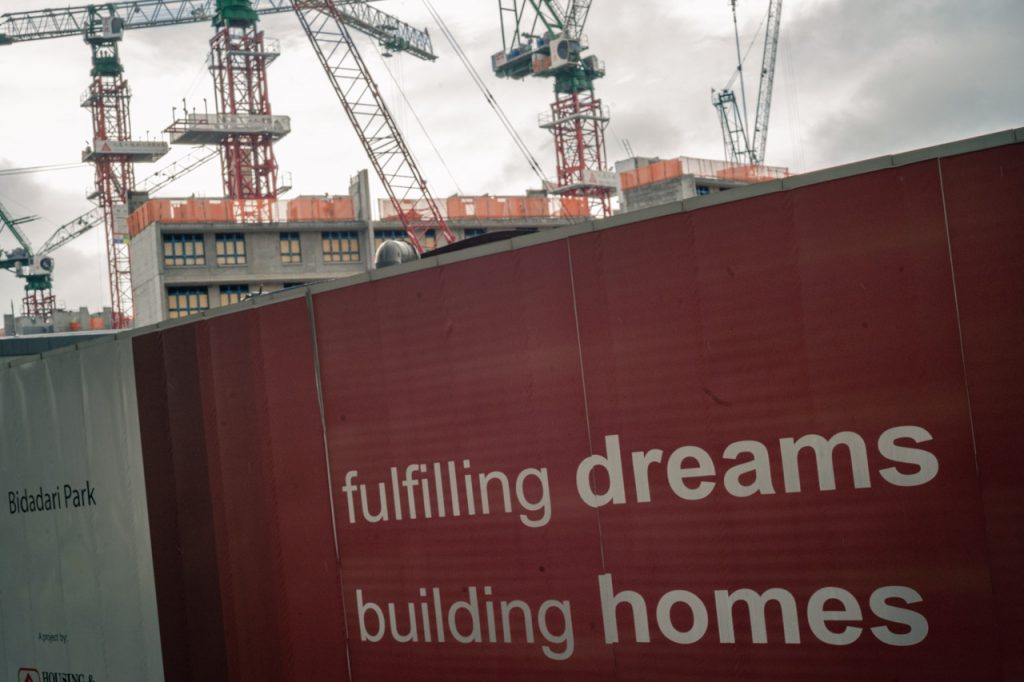
What’s In a Family?
In Singapore, the housing market rules are different for different people. Regardless, Shaun believes everyone should have the option to own a house they can be proud of and call home. Owning a Singapore home is “fundamental”, as he puts it.
After all, how can someone feel a sense of belonging to a place if the laws of the land literally make it harder to purchase a place they can call home? The irony writes itself.
“I understand why family policies are in place. But if policies can be adjusted so that we can better have a chance to get a roof over our heads, that would be great,” he adds.
It took years before 377A was repealed. In the same vein, it could take another few more before housing becomes more accessible for Singaporeans who find themselves in family structures outside the government-sanctioned nuclear family unit.
In fact, ‘family-forward’ policies—ones that incentivise couples to get married and have children in the face of a declining birth rate—are a misnomer at best. Are singles who choose to co-own a house or a gay couple not families too?
If Singapore wants to be a home for all, it has to start affording the same—or at least some semblance of equality—housing options to different segments of society. Shaun continues to fight the good fight as the realtor for all.

